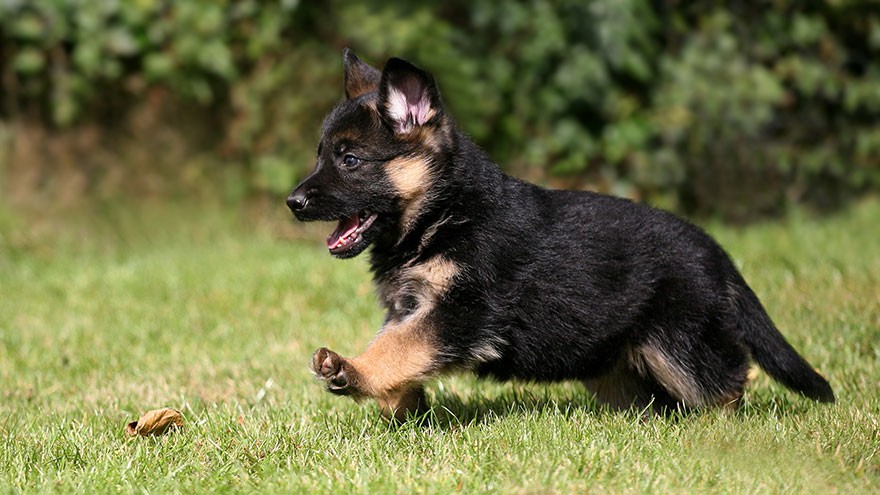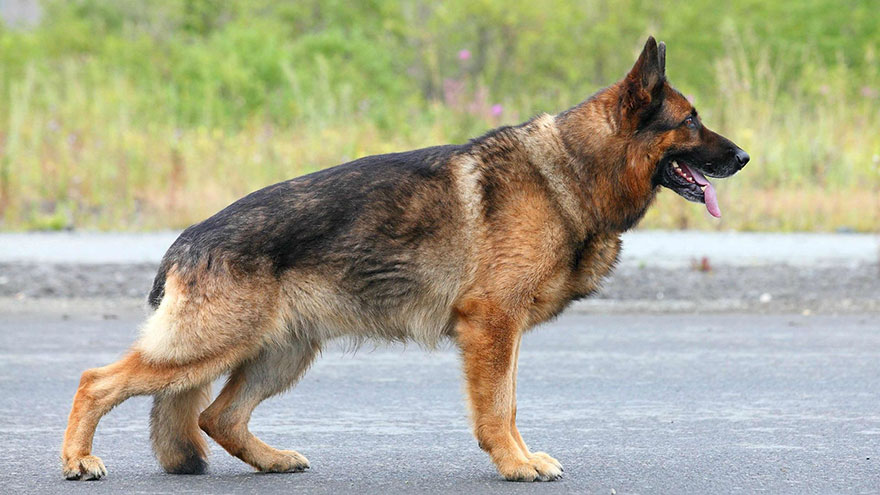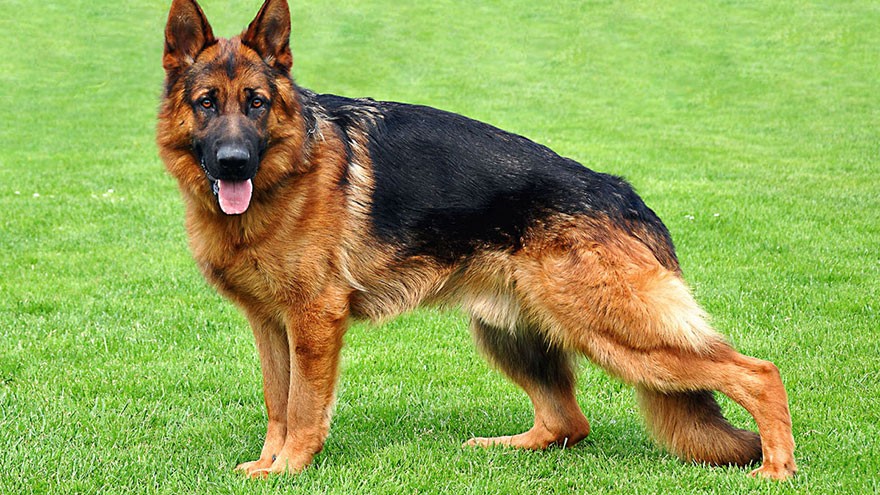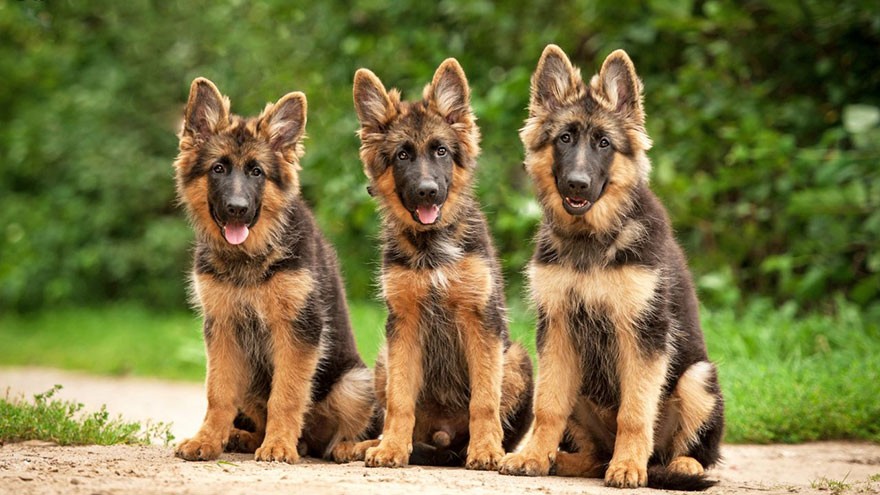German Shepherd Breed Information
The German Shepherd is widely recognized as one of the most versatile and intelligent of all dog breeds. For many years, this dog has remained at the top of the list for family pets, as well as for working dogs in search and rescue, police work, and much more. If you are considering a German Shepherd, you can depend on getting a beautiful dog with long lines and a shiny coat, especially if you work with one the top-grade breeders in the country.
This wonderful breed came from the efforts of a small group of German dog enthusiasts who formed a society in 1891 to promote native German dog breeds. A man named Captain Max von Stephanitz entered the picture in 1894. The dog he saw in 1899 that had the strength and herding skills he admired, Horand v Grafeth by Von Stephanitz, was the beginning of a long history for the breed.
From this excellent animal came the line from which German Shepherds emerged. Then in 1919, the English Kennel Club gave the breed a separate register. Once known as the Alsatian Wolf Dog, the name was eventually changed back to German Shepherd, a name by which it is known throughout the world.
German Shepherd Temperament
Known as a fearless and alert animal, the German Shepherd is also very loyal and protective of the owner and property. However, a well-bred German Shepherd will be calm and confident rather than hostile, showing a very high level of intelligence that allows the dog to interact closely with its owner. Some owners characterize their German Shepherd as noble and self-confident, though most have also found well-trained and socialized dogs to be very approachable in the right situations.
However, because of their strong instinct to protect what they are familiar with, young German Shepherds should be well socialized as puppies so that they are comfortable with other animals and with humans. In addition, most experienced owners urge firm obedience training for the young German Shepherd, even if you know the dog’s parents and bloodlines well. This breed responds well to firm but positive training, not doing well if pushed or given unreasonable commands.
A good German Shepherd would be naturally protective of home and family, but it is best not to want or expect an aggressive or angry dog, even if your German Shepherd will be your watchdog and guard dog. A good instructor can take a calm and confident animal, making it a very good watchdog or guard dog that is still not a threat to other dogs or human beings.

German Shepherd Size and Color
This long, beautiful dog most often is found with a black and tan coat, but others are all black or even a sable color. White shepherds are often recognized as a separate breed, the American White Shepherd, but they are not generally acceptable to clubs and competitions.
A healthy German Shepherd should be muscular but appear lean and sturdy, with pointed, upright ears and hard soles on its feet. Additionally, this breed has three types to include rough-coated, long rough-coated, and the longhaired. Males generally stand 24 to 26 inches at the withers while females are between 22 and 24 inches. For weight, the average adult German Shepherd should weigh between 77 and 85 pounds.

German Shepherd Feeding and Grooming Requirements
German Shepherds were bred as working dogs, herding farm animals and working as protectors of family and property. Therefore, you should expect a dog that wants plenty of activity and even some training for a type of competition or agility. This breed does fine indoors as long as you give it adequate exercise and time outside.
For this type of dog, a well-balanced diet is essential. Many breeders and experienced owners feed their German Shepherds much the same food they might buy for themselves, including lean meats and some vegetables. In general, you are urged to try to give your German Shepherd foods that have many of the same nutrients, as found in its natural habitat.
RELATED :: Male vs. Female German Shepherd Dogs
One expert notes that German Shepherds have a shorter colon than many dogs of the same length and body style, so a high-fiber diet is best to slow down the passage of food through the digestive system. This allows the body to absorb the nutrients needed more effectively. Many dogs do not do well with the high grain content of cheaper commercial foods and in fact, some animals are allergic to the corn, wheat, or soy of which food is comprised.
Because this strong dog loves the outdoors, you may want to plan on some extra brushing or cleaning with your German Shepherd. This dog does shed some hair constantly, but shed heavily only with the change of seasons. Typically, a quick daily brushing would be good and to keep the dog clean, a bath every few months but not more often in that you want the dog to retains its natural oils.

German Shepherd Exercise Needs
The German Shepherd is an active dog, to say the least. Although it may be inactive indoors, this will change when given a yard to run in or a park to exercise in. The German Shepherd is highly intelligent and will be happy to play with you and work with you in agility and competition, as long as the demands are positive along with being firm.
You will probably be pleasantly surprised at the level of intelligence of the German Shepherd. This breed is excellent as a watchdog, a guard dog, and in the search and rescue services. Additionally, the German Shepherd is often used as a drug-sniffing dog.
However, this breed also makes an excellent companion for those with physical disabilities or blindness. With all of this need and love for activity, we would encourage you to think of the German Shepherd as an outdoor companion.

Read More About German Shepherd
- German Shepherd : 10 Most Common Questions
- German Shepherd Training Guide
- German Shepherd Health Guide
- Owning a German : Breeder Recommendations

